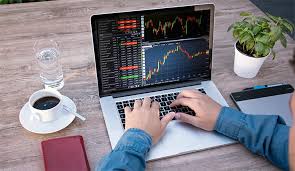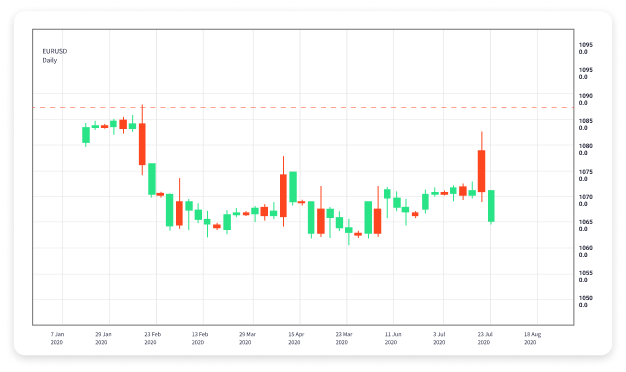
Understanding Forex Trading Leverage: A Comprehensive Guide
In the world of forex trading, leverage plays a crucial role in determining the potential profitability of trades. It allows traders to control larger positions with a relatively small amount of capital. For those new to forex, understanding leverage is essential for successful trading. In this article, we will delve deep into what leverage is, how it works in forex trading, and the risks and rewards associated with it. If you’re considering entering the forex market, it’s vital to grasp the concept of leverage, which you can also learn more about at forex trading leverage explained https://webglobaltrading.com/.
What is Leverage in Forex Trading?
Leverage in forex trading refers to the ability to control a larger position size than the amount of capital you have in your trading account. It is essentially a loan provided by the broker, which amplifies both potential gains and potential losses. Leverage is typically expressed as a ratio, such as 100:1 or 500:1, indicating how much your broker will allow you to trade in comparison to your margin. For example, if you have a leverage of 100:1, you can control $100,000 with just $1,000 in your account.
How Does Leverage Work?
When you open a forex trading account, your broker will require a certain amount of capital to cover the risk of the trades you intend to make. This amount is known as the „margin.” Leverage acts as a multiplier, allowing you to trade more significant amounts than your initial investment. For instance, if you deposit $1,000 into your trading account and utilize a leverage of 100:1, you could potentially control a position size of up to $100,000 in the forex market.

However, while leverage enhances potential returns, it also increases risk. A small movement in the market can lead to substantial losses, especially if the market moves against your position. Therefore, it is imperative to use leverage carefully and to have a robust risk management strategy in place.
Benefits of Using Leverage in Forex Trading
The primary advantage of leverage is the potential for increased profits. Here are some notable benefits:
- Increased Buying Power: Leverage enhances your buying power, enabling traders to open larger positions than their account balance would ordinarily allow.
- Flexibility: Traders can implement various strategies and adjustments using leverage, facilitating a more dynamic trading approach.
- Higher Return on Investment (ROI): With the ability to control larger amounts of capital, even small price movements can lead to significant returns when using leverage wisely.
Risks of Using Leverage in Forex Trading
Although leverage can amplify gains, it also magnifies losses. Here are some risks associated with using leverage:
- Increased Losses: The higher the leverage, the larger the potential loss. A small adverse movement in the market can result in a complete loss of your initial investment.
- Margin Calls: If your account balance falls below the required margin due to losses, brokers may issue a margin call, requiring you to deposit more funds or face automatic closure of your position.
- Emotional Stress: The pressure of trading with leverage can lead to emotional trading decisions, which may impact your overall strategy and risk management.

How to Use Leverage Effectively in Forex Trading
To utilize leverage effectively, traders should follow several strategies:
- Understand Your Risk Tolerance: Determine how much risk you are willing to take before trading with leverage. It’s crucial to have a clear understanding of your risk limits.
- Use Stop-Loss Orders: Protect your capital by automatically closing positions at a predetermined loss level. This can mitigate the risk of significant losses.
- Start Small: When new to leverage, begin with lower ratios and smaller positions until you gain experience and confidence in your trading strategy.
- Educate Yourself: Continuous education about market dynamics, trading strategies, and financial principles can significantly improve your trading performance.
Choosing the Right Broker for Leverage
Not all forex brokers offer the same leverage options. Some may provide higher ratios than others, and it’s essential to choose a broker that fits your trading strategy. When selecting a broker, consider:
- Regulation: Ensure your broker is regulated by a reputable authority to minimize the risks associated with trading.
- Leverage Offer: Look for brokers that provide leverage options that align with your risk profile and trading objectives.
- Spreads and Fees: Evaluate the cost of trading, as high spreads and fees can eat into your profits, especially when trading with leverage.
Conclusion
Leverage in forex trading can be a powerful tool that offers greater potential profits but comes with significant risks. Understanding how leverage works, its advantages and disadvantages, and how to use it effectively is crucial for traders aiming to succeed in the complex world of forex. With proper education, sound strategies, and strong risk management practices, traders can harness the power of leverage to enhance their trading experience. Always remember that while leverage can magnify gains, it can equally magnify losses, making it essential to approach forex trading with caution and informed judgment.

